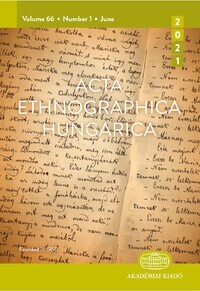“This Is Our Bank”: Agricultural Associations and Their Role in Two Swabian Villages in Satu Mare From the Regime Change to the Present
“This Is Our Bank”: Agricultural Associations and Their Role in Two Swabian Villages in Satu Mare From the Regime Change to the Present
Author(s): Levente SzilágyiSubject(s): Rural and urban sociology, Transformation Period (1990 - 2010)
Published by: Akadémiai Kiadó
Keywords: regime change and the agrarian question; agricultural associations; Satu Mare Swabians
Summary/Abstract: The study examines the impact of the agricultural associations of two Swabian settlements – Mezőfény (Foieni) and Mezőpetri (Petrești) – on the local economy and society. Agricultural associations played an important role at the beginning of the process of agrarian transformation after the regime change in Romania. The successor organisations of the socialist agricultural associations, now established on a voluntary basis, were able to counteract the impoverishment caused by the reparcelling or forced reparcelling of land during the long transitional period, while at the same time exploiting their monopoly position to prevent the emergence of individual and family farmers. The risk-averse, self-reliant economic model of the associations is reminiscent of the peasant, self-sufficient farm organisation. The associations can thus be seen as a very specific form of post-socialist post-peasant production systems.
Journal: Acta Ethnographica Hungarica
- Issue Year: 66/2021
- Issue No: 1
- Page Range: 181-200
- Page Count: 20
- Language: English

